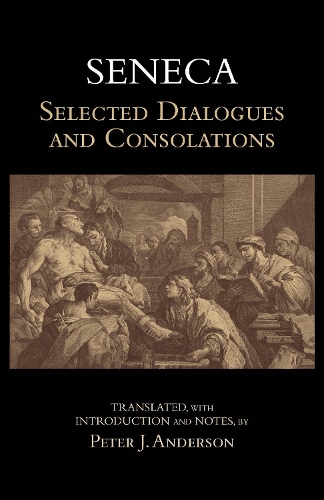
Seneca: Selected Dialogues and Consolations
(Paperback)
Available Formats
Publishing Details
Seneca: Selected Dialogues and Consolations
By (Author) Seneca
Translated by Peter J. Anderson
Hackett Publishing Co, Inc
Hackett Publishing Co, Inc
12th June 2015
United States
Classifications
Tertiary Education
Non Fiction
Ancient Greek and Roman philosophy
188
Physical Properties
Paperback
256
Width 139mm, Height 215mm
252g
Description
Seneca's dialogues--as his epistolary essays have traditionally been known--offer an ideal path into the philosophical thought of first-century Rome's most famous Stoic, whose compelled suicide in 65 CE (by order of his former pupil Emperor Nero) drew comparisons to the death of Socrates.
Notable for, among other things, their portrait of a providential universe and defense of the life of virtue, the nine dialogues included in this volume illustrate the deeply intertwined cosmological and moral arguments of ancient Rome's chief philosophical alternative to Epicureanism and Academic Skepticism.
Peter J. Anderson's new translation conveys the distinctive character of Seneca's style, while striving for accuracy and consistency in its renderings of key terms. His Introduction discusses the dialogues as works of art and situates them in the context of ancient Stoic philosophy as well as the wider philosophical scene. Notes and a glossary are also included.
Reviews
"An excellent tool for students and teachers of Latin literature and Stoic philosophy."
Aldo Dinucci, in Archai
"Were I to include Seneca in a course on the Renaissance or on the Roman origins of our liberal arts ideal I would use Peter Anderson's new translation. The Introduction is excellent: readable and comprehensive. I especially like his discussion of the challenge of translating what he calls Seneca's six key words and their cognates. His lucid overview of the philosophical ideas that informed Seneca's thinking will help readers ponder nature and humanity, the cosmos and the polis, from within Seneca's mind and times. The translation can on occasion be nicely graphic, and thus likely to engage first-time readers, as for example in one of the opening lines of theConsolation to His Mother Helvia:'. . . I kept crawling along (reptare), trying to bind your wounds whileI used one hand to keep pressure on mine(manu super plagam meam imposita).'"
Robert E. Proctor, Joanne Toor Cummings '50 Professor of Italian,Connecticut College
Author Bio
Peter J. Anderson is Associate Professor of Classics, Grand Valley State University.
